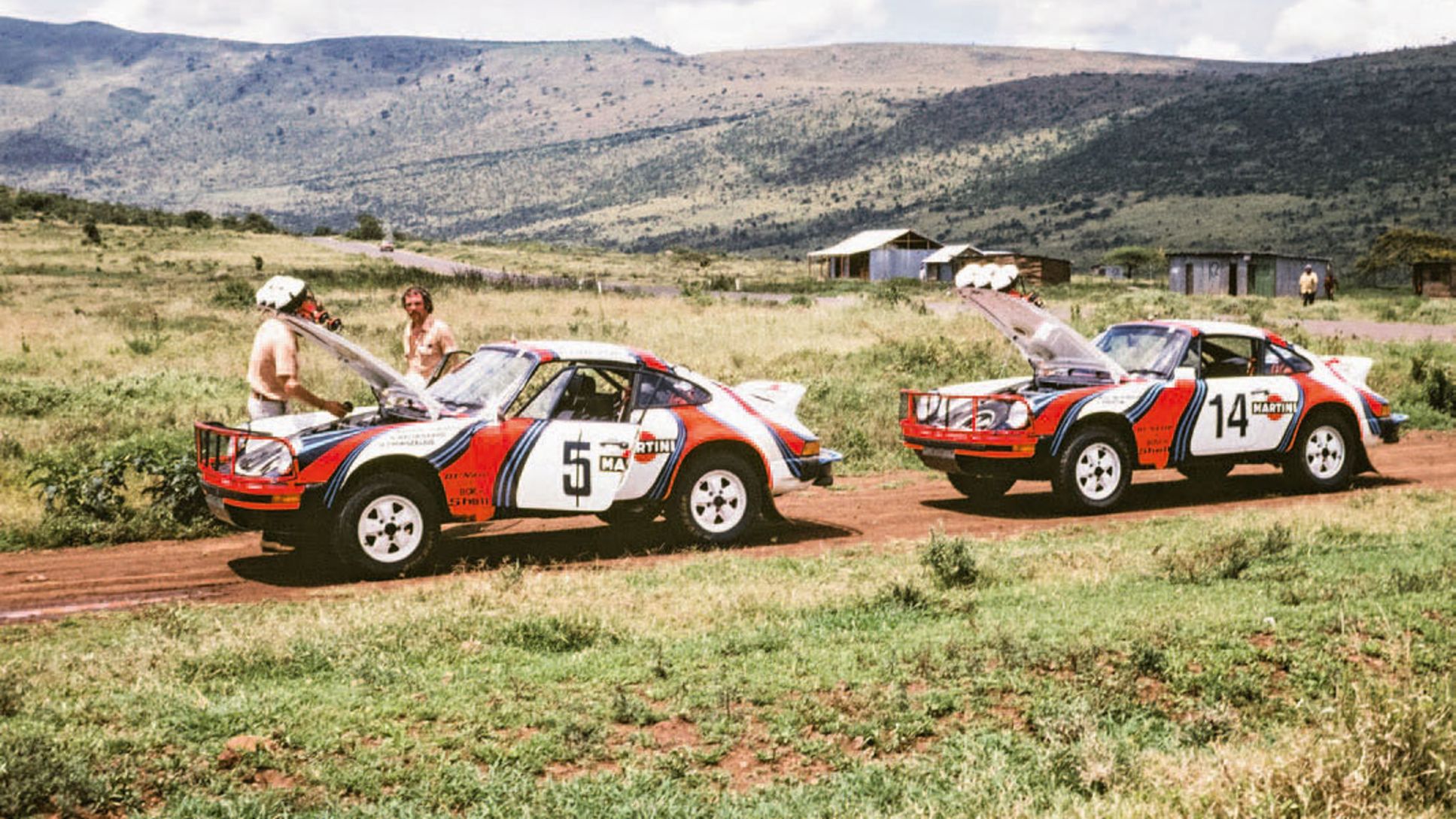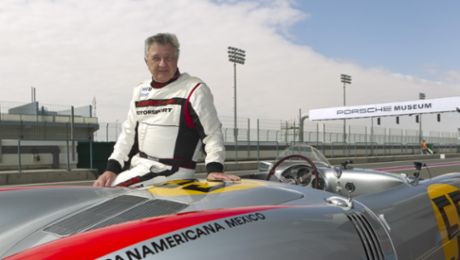For many, the East African Safari Classic Rally is the toughest rally of all. Porsche accepted the challenge and managed to get both cars across the finish line in 1978 — as the only team.
While others go hunting Easter eggs in their gardens, Björn Waldegård and Hans Thorszelius hit a boulder driving through the mud in March 1978. At the wheel of a Porsche 911 SC 3.0. Instead of their nerves, they had lost the rear axle tiebar and the lead of the East African Safari Classic Rally. In the end, the two Martini 911 drivers still came in fourth despite the breakdown – two places behind their team colleagues Vic Preston Junior and John Lyall.
At the 26th Safari Rally, “the finish line“ means: “after 94 hours and 3,000 miles“. That’s like leaving Zuffenhausen on a Thursday afternoon heading for Moscow just to be back on Monday at noon. With the slight difference that you’re not driving on tarmac but through Kenya’s savannas, semi- deserts and highlands.
The Porsche team knows the exact route only one day before the start
To put it differently: The rally pros were on a trip beyond good and evil. There’s no other way to describe two tuned 3-liter Porsches rushing across loose sand in turns, crossing rivers with a ground clearance of 28 centimeters, crawling through red sloughs, flying over jumps, blindly crossing walls of dust, traversing unpaved roads that weren’t blocked or fighting their way up Kenyan mountains.
Always on the spot: Roland Kussmaul and Jürgen Barth who Porsche dispatched to the desert – together with 9.5 tons of material and the hope of victory. These two frantic mechanics proved that they were not only able to cross the steppe at 130 mph, but managed to exchange a fiberglass coated rear axle tiebar in the middle of nowhere without a creature in sight. No creature in sight – that’s also due to the fact that the exact route is announced only one day before the start – to ensure equal opportunities for all participants.
But it’s not even the toughest training that decides on victory or defeat. At the East African Safari Classic Rally, it’s much more about managing speed, the mechanics’ swift hands, the pilots’ experience and the robustness of the car. And with an ounce of luck on top, you can make it to the finish line with both cars as the only team.
Porsche 911 SC 3.0
ENGINE: six cylinders Boxter-engine
DISPLACEMENT: 2,994 ccm
POWER: 250 hp (184 kW)
MAX. TORQUE: 300 Nm at 5,500 rpm
TOP SPEED: 210 km/h
YEAR OF CONSTRUCTION: 1978
WEIGHT: 1,180 kg
GROUND CLEARANCE: 28 cm
Info
Text first published in "rampclassics", issue 4
text: Christina Rahmes

